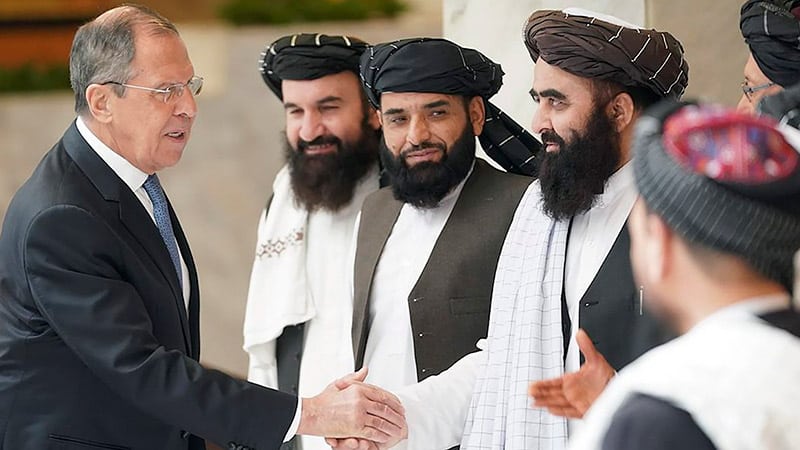As Russia becomes the first major world power to formally recognize the Taliban, questions loom over whether this marks a turning point for Afghanistan, or a dangerous provocation toward the West.
Nicholas Kay, former British envoy to Afghanistan, cautions that Moscow’s recognition may encourage some regional players to follow suit, but it is unlikely to move the needle for Western governments still deeply opposed to the Taliban’s policies. Speaking to Afghanistan International, Kay emphasized that Russia’s engagement with the Taliban is not a sudden shift, but rather the culmination of years of discreet ties.
“Some neighboring states may pursue recognition based on narrow national interests,” Kay noted. “But the West remains focused on human rights, terrorism, and migration, and in those areas, the Taliban has made no meaningful progress.”
Russia’s formal recognition could be interpreted as a strategic effort to reassert influence in Central Asia, especially amid China’s expanding economic footprint in Afghanistan. Yet it also raises the spectre of the Taliban drifting into a Russian orbit at a time when their international legitimacy remains deeply contested.
Recent developments underscore this contradiction. Barely days after gaining recognition, the Taliban reached out to Moscow for military hardware, a move some analysts see as desperate and potentially self-sabotaging. Simultaneously, Taliban intelligence officials expressed concerns over suspected Russian espionage activities within Afghanistan, suggesting deep internal mistrust even as Kabul extends an open hand.
Kay warns that while regional powers may seek economic or security leverage, the Taliban’s enduring rejection of basic civil, political, and women’s rights continues to block broader international acceptance. “Without serious reform, the West will not shift its stance,” he said.
Despite holding power since 2021, the Taliban has failed to build a sustainable governance model or gain broad-based legitimacy. According to Kay, the regime’s structure remains fragile, and Afghanistan’s ethnically and politically diverse society is unlikely to accept long-term rule by an exclusionary movement.
For now, Russia’s recognition may give the Taliban symbolic validation, but it risks deepening their isolation from the broader international community. Rather than signaling progress, the arms request and espionage fears suggest a government torn between courting global powers and fearing their influence.
If the Taliban continues down this path, they may find themselves not more empowered, but more dependent, caught in the geopolitical crossfire between East and West, with little to show for it at home.





